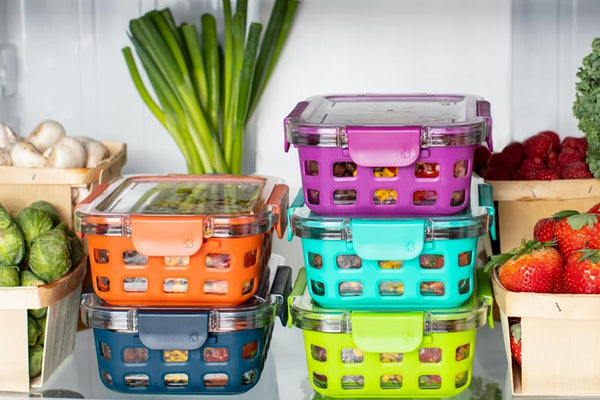Tips on How to Store Thanksgiving Food Properly

So you've had your turkey day, and the hungry crowds have ravaged the bird and the mashed potatoes, and the casserole sides and everything else, leaving both the gravy boat and the cranberry sauce dish greatly depleted. But if you're like millions of families and Thanksgiving planners across the country, you have quite a bit of food left over. It's extremely hard to pinpoint exactly how much food you should have on hand for any Thanksgiving dinner, so dealing with leftovers becomes sort of its own national holiday in itself.
Here are some tips to help you to save and eat Thanksgiving leftovers with more confidence. These Thanksgiving leftover ideas include how to freeze leftover turkey, and how to store Thanksgiving leftovers in a safe way. All of it conforms to the best food safety guidelines used by restaurants based on actual food science.
Thanksgiving Leftover Ideas: Best Way To Store Leftovers
First, food science professionals have found that, contrary to some popular opinion, you should not leave food out to reach room temperature before putting it away in the refrigerator. This, they say, leads to too much time for bacteria to take hold and grow. Experts suggest refrigerating or freezing leftovers while they are still warm, or even mildly hot. This puts the kibosh on excessive bacterial growth while that transition is occurring, even though you might think your fridge is going to have to work harder.
It's also a good idea to use shallow containers because it gives the food more of a surface to cool off. With extremely large cubic containers, the middle can stay hot for a longer time, which can cost you some energy in terms of your refrigerator working overtime. So really, by packing food more thinly, you avoid the problem mentioned above where food middles stay hot too long.
How Long Can Leftovers Be In The Fridge?
This is another one where popular opinion runs into professional advice, in a contradictory way. USDA resources show why you should eat refrigerated leftovers within four days. That means by the Monday following the holiday, all of that extra turkey, mashed potatoes and sauce should be in somebody's belly, or safely frozen for some future post-Thanksgiving meal. It's surprising how many people continue to eat these refrigerated leftovers on the next Tuesday, Wednesday, Thursday and beyond. Many protest that they just have never got sick from doing this – but the food science suggests you’re rolling the dice.
Best Way to Freeze Leftovers
Again, having leftovers in shallow containers helps you to reheat them more easily. Beyond that, experts suggest squeezing the air out of freezer bags in order to prevent crystallization. With that in mind, you can easily freeze turkey, gravy, cranberry sauce and vegetable sides like green beans and even mashed potatoes (though the texture of the potatoes could admittedly suffer). It's not advisable to freeze all of these items together – each one should get its own container, so that you can reheat in a more customized way.
Tips for Reheating Thanksgiving Leftovers
When it comes time to reheat your tasty Thanksgiving dinner, one of the best Thanksgiving tips is to really get the food good hot to kill any remaining bacteria that may be present. Again, if you have stored the food in separate containers, you can reheat it in a more precise way. If you have the food in shallow containers, you'll get a more even reheating, rather than having a frozen chunk in the middle. There's nothing more frustrating than trying to get frozen food hot with those troublesome icebergs floating around in your pan. Remember, food safety involves setting timelines such as a ‘use or freeze date’ that's standard in both restaurant management and grocery labeling.
With the above strategies at your disposal, you can reconstitute Thanksgiving in December or January. Most scientific sources recommend eating frozen food within 5 to 6 months, so if it's still there in April or May, you may want to do some spring cleaning. With the above tips in hand, you should be able to effectively salvage your post-Thanksgiving abundance without getting anyone sick, and be able to save yourself some trouble when you get the frozen stuff out of the chest freezer weeks or months later. Use these Thanksgiving leftover ideas to get more out of your big holiday meal.




















